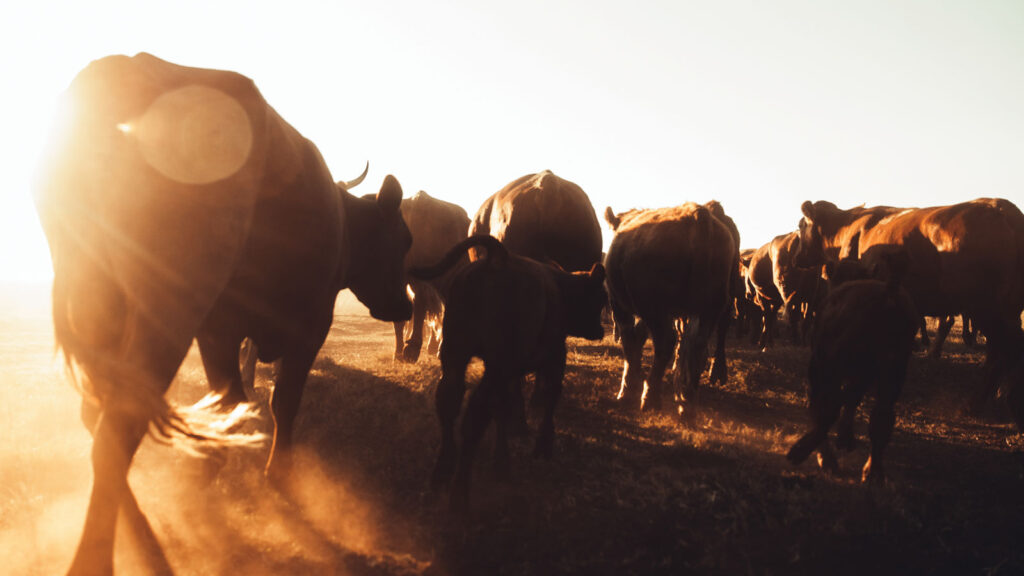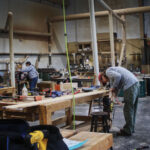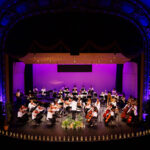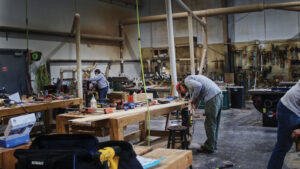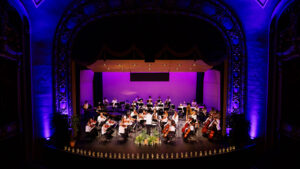Agriculture marries technology to produce better crops and livestock.
Autonomous tractors and drones. Farm machinery connected to and guided by satellites. Pigs engineered to provide heart valves and possibly other organs for humans. Regenerative agriculture practices that sustain, rather than deplete, soil nutrients. Seeds that produce pest- or even drought-resistant crops.
Sounds like science fiction.
But it’s happening because of research and degree programs through the University of Missouri’s College of Agriculture Food and Natural Resources, or CAFNR. The future is now. But is there a place for the pastoral setting of a farmhouse, barn, windmill, and silo standing tall on the landscape?

associate dean for research, MU College of Agriculture, Food and Natural Resources
“Although the farmscape may look similar with crops, animals, silos, and barns, there is a technological revolution that is taking place that will be noticeable soon — if you haven’t noticed already,” says Shibu Jose, associate dean for research at CAFNR and director of the MO Agricultural Experiment Station.
Jose has had a first-hand, lifetime view of the technology and agriculture courtship. He’s confident that the tech aspect of agriculture will increase exponentially. He’s just as certain that, no matter what machines can master, there will always be the need for brawn — as well as brains — on the farm.
“Manual labor is still a big part of agriculture,” he says, adding that he grew up on a small farm in India where “100 percent of everything was done by human labor.”
“I learned to drive a tractor and operate a combine after moving to the U.S., and that was 31 years ago,” Jose says, referring to how he has witnessed the digital revolution in agriculture.
“You may control the planter and sprayer from your cell phone in a few years, but the fundamentals of growing crops or raising livestock will remain the same,” he explains. “It’s the passion and the love of land and the commitment to feeding the world that keep farmers in business.”
The business of farming and agriculture has also expanded — for some time now — from barns and pastures to laboratories and computer software where research is carried out and data is collected. CAFNR is at the forefront of that picture.
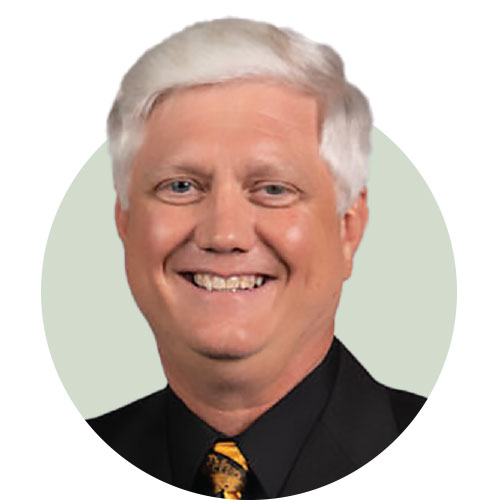
senior associate dean and director of academic programs at CAFNR
“The high-tech nature of agriculture is evident everywhere, even in the names of our majors and divisions,” says Bryan Garton, senior associate dean and director of academic programs at CAFNR. “Adding a certificate in precision agriculture technology, for example, can add that technology-focused knowledge whether you plan to focus on the livestock or the crop side of production agriculture.”
Garton notes that CAFNR has experienced a 25.5 percent increase over the past five years (2017 to 2022) in the number of students pursuing degrees focused on the production of food and fiber, food processing, natural resources, and the environment.
The majority of CAFNR’s 2022 graduates self-reported that they are working in the agriculture and natural resources industry, Garton says. Most of their job functions are related to sales or management.
Academics and agriculture are especially collaborative and cross-disciplinary at CAFNR. The college’s majors allow for flexibility and cross-over learning. That’s true for an agriculture major, he adds. An ag degree from CAFNR means the student may customize the program by choosing courses from three CAFNR disciplines, minors, or certificates.
“Our degrees today can not only be specialized, but also broad,” Garton says. “It’s a great combination that allows our students to have such unique paths in their careers.”
CAFNR degree programs are focused on five areas:
Environment
- Environmental sciences
- Natural resource science and management
Food Systems
- Agriculture
- Agricultural systems technology
- Animal sciences
- Plant sciences
People
- Agricultural education
- Parks, recreation, and sport
Economies
- Agribusiness management
- Hospitality management
- Personal financial planning
Health
- Biochemistry
- Food science and nutrition
- Nutrition and exercise physiology
CAFNR features a global network of alumni, employers, faculty, staff, students, and friends. The college’s students are encouraged to go beyond the classroom to have one or more “signature experiences” by studying abroad, service learning, and experiential learning. Undergraduate research internships offer real-world experience (including a student-run flower shop, ice cream shop, and meat market) and a variety of clubs and organizations.
CAFNR also has one of the largest scholarship programs on the MU campus, awarding more than $1.5 million each year.
The global and statewide reach is a central focus for CAFNR’s commitment to its land-grant mission — teaching research and extension, says Christopher Daubert, vice chancellor and CAFNR dean.
“We take the university and ‘extend’ it out,” Daubert explains. “Not just in our classrooms and laboratories — it’s taking our message, our research findings, our teachings, and extending it out to every Missourian.”
The new Boone County Nature School south of Columbia will also have a CAFNR component. The school, which is being implemented in phases as fundraising continues, is a partnership among Columbia Public Schools, the Missouri Department of Conservation, the city of Columbia, and the other school districts in the county. CAFNR is partnering to measure educational results from the curriculum. Local health officials will also be involved to implement and measure mental and physical health outcomes.
Garton points out that CAFNR encompasses a broad array of programs centered around “cultivating a healthy world.”
“This means a healthy environment, healthy food systems, healthy people, plants and animals, healthy economies, and healthy communities,” he explains.
And when it comes to healthy economies, Jose says that local production and processing of crops and meat can alleviate some of agriculture’s challenges and help the local economy.
“It’s a true statement that our farmers feed the world,” Jose adds. “We take food security for granted, but farming must be profitable for us to remain food secure.” He notes a litany of challenges, too, including uncertainties from extreme weather events, high input costs, and supply-chain disruptions.

Robert Kallenbach
associate dean of extension for CAFNR and senior program director for MU Extension
But can smart tech and smart farms outsmart Mother Nature? Robert Kallenbach, associate dean of extension for CAFNR and senior program director for MU Extension, says the college is up for the challenge. After all, one-third of Missouri’s economy is based on or connected to agriculture.
“As the planet warms up — as we have more big weather — we’re going to see tech be an even bigger part of how food is produced,” Kallenbach explains. “Ag is really at the forefront of tech right now. Food is at the forefront of tech.”
He reiterates that CAFNR is all about agriculture and food systems, but also business and community development, nutrition, and health. As the college helps create the future by training the next workforce to implement technology, there will be new opportunities for agriculture. He points to food systems in urban agriculture, where technology might be able to curtail or eliminate what the U.S. Department of Agriculture defines as “food deserts.”
“There are some opportunities there,” Kallenbach says.
Jose agrees.
“Small farms and controlled environment farms, particularly in urban centers, are becoming more common,” he says, adding that the era of digital agriculture with smart sensors and precision technologies “are transforming farming and making it more efficient and economically viable.”
And that sums of at least a portion of what CAFNR aims to do with a more diverse agricultural workforce of mechanical and computer engineers, data scientists and statisticians, agronomists and animal scientists, and soil and water specialists. Jose says CAFNR faculty is conducting “cutting-edge research” and sharing that knowledge with the ag and science communities.
He continues, “We’re training the next generation of the agriculture, food, and natural resources workforce that can meet the challenges of tomorrow.”
Daubert says CAFNR continues to grow and has a strategic plan of “grand ideas” as it works on initiatives such as new technologies in animal reproduction, ecosystem health, precision foods and models for health, and digital farming. One of the “grand ideas” is the Show-Me Food, Beverage and Forest Products Manufacturing Initiative.
Daubert notes that the initiative “has seen great support from the state and other educational institutions in Missouri.” The most recent support includes $25 million for a new meat processing facility on campus.
“This will be a huge aid to Missouri producers and food manufacturers” for remaining viable and profitable, Daubert says. “Remaining competitive on the international stage is crucial, and technology and science are answers to how to do that.”
CAFNR Programs of Distinction
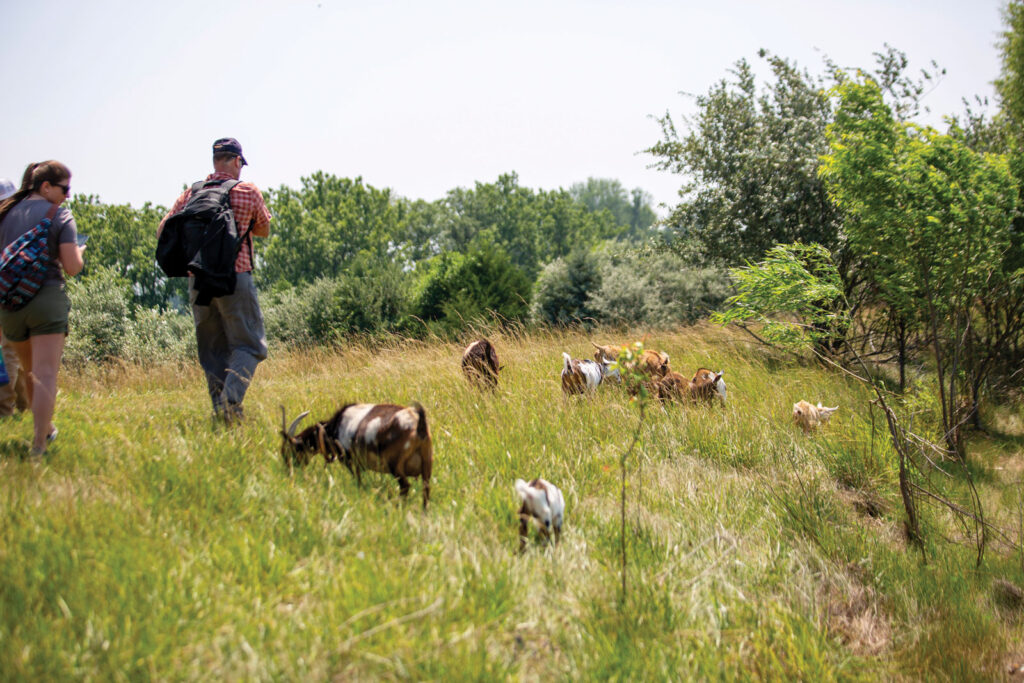
MU Center for Agroforestry
The center hosted three events this summer aimed at helping the production of elderberry, nut trees, and practicing agroforestry. The Northern Nut Growers Association’s annual conference took place the last week of July and was a joint meeting with the Chestnut Growers of America and the Walnut Council. The first day of the conference consisted of an all-day field tour of the MU Horticulture and Agroforestry Research Farm.
Food and Agricultural Policy Research Institute
FAPRI seeks to provide objective analysis of issues related to agricultural markets and policies. FAPRI was established in 1984.
Interdisciplinary Plant Group
IPG is a cross-discipline program to foster excellence in plant biology research and education at MU.
Interdisciplinary Reproduction and Health Group
IRHG was organized and established via a faculty-driven, grassroots effort in 2016 to develop a multidisciplinary program to foster distinction in reproduction, health research, and education at Mizzou.
MU Forage-Livestock Group
When the group was formed in 1971, plant and animal scientists met informally over lunches to plan grazing experiments and discuss research findings. Today, the group includes more than 20 scientists and their elite teams in CAFNR, who collaborate with colleagues in the College of Veterinary Medicine.
Show-Me-Select Replacement Heifer Program
The program is recognized nationally as a model in the land-grant system in translational research and extension with immediate impacts on Missouri’s beef industry. The program transfers science-based knowledge that enables participants to make practical decisions that impact their bottom line.
MU Livestock Engineering Team
Known as the MULE Team, the focus is on production of genetically engineered livestock for science, medicine, and agriculture. MULE Team researchers have been awarded $140 million in grants, including $33 million for the National Swine Resource and Research Center, since the program’s inception in 1989.
